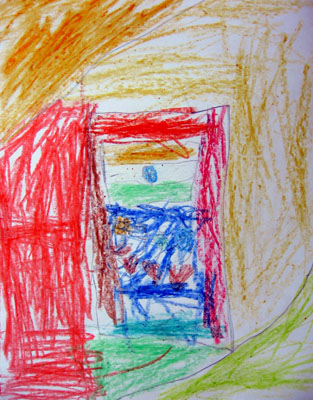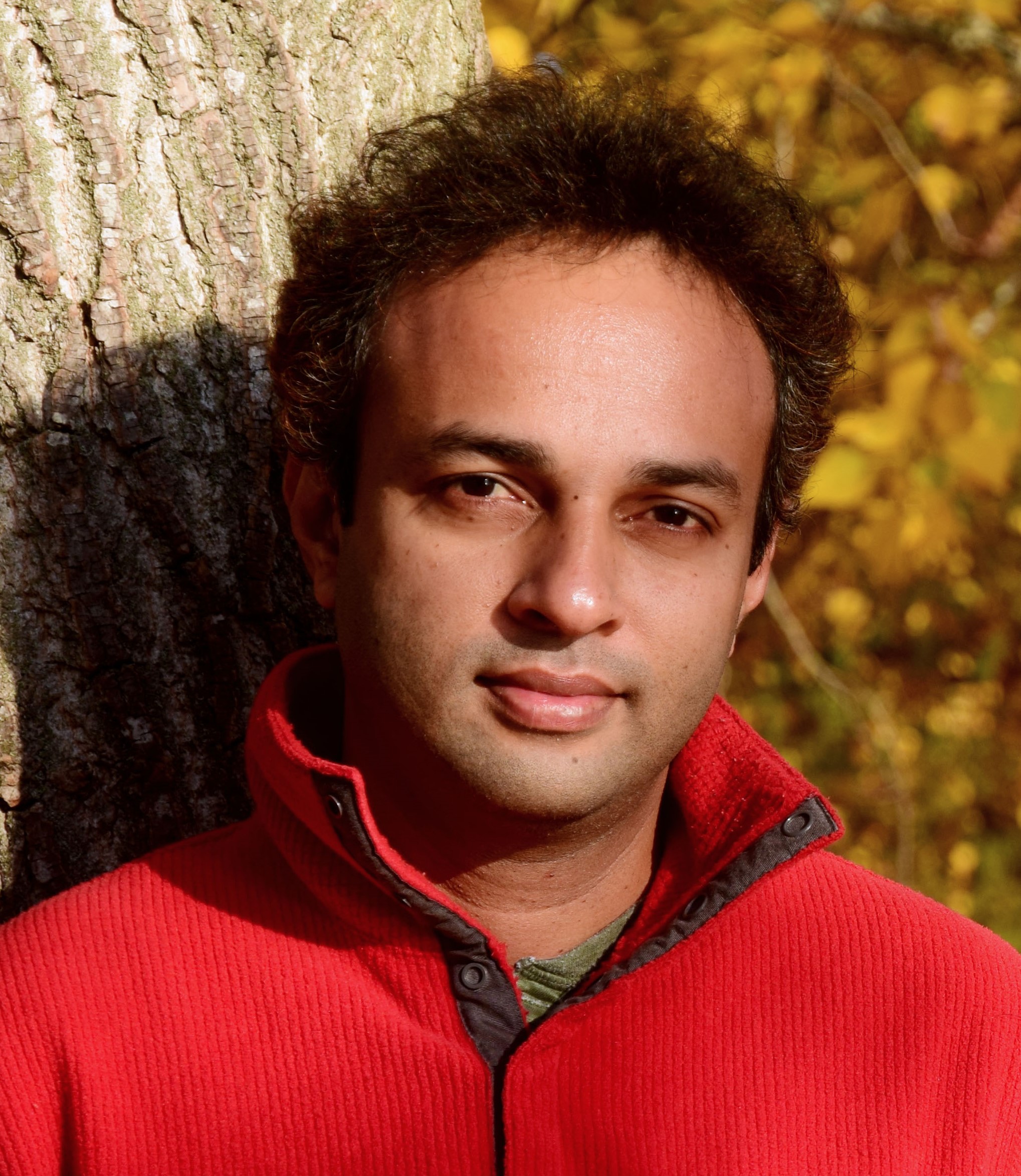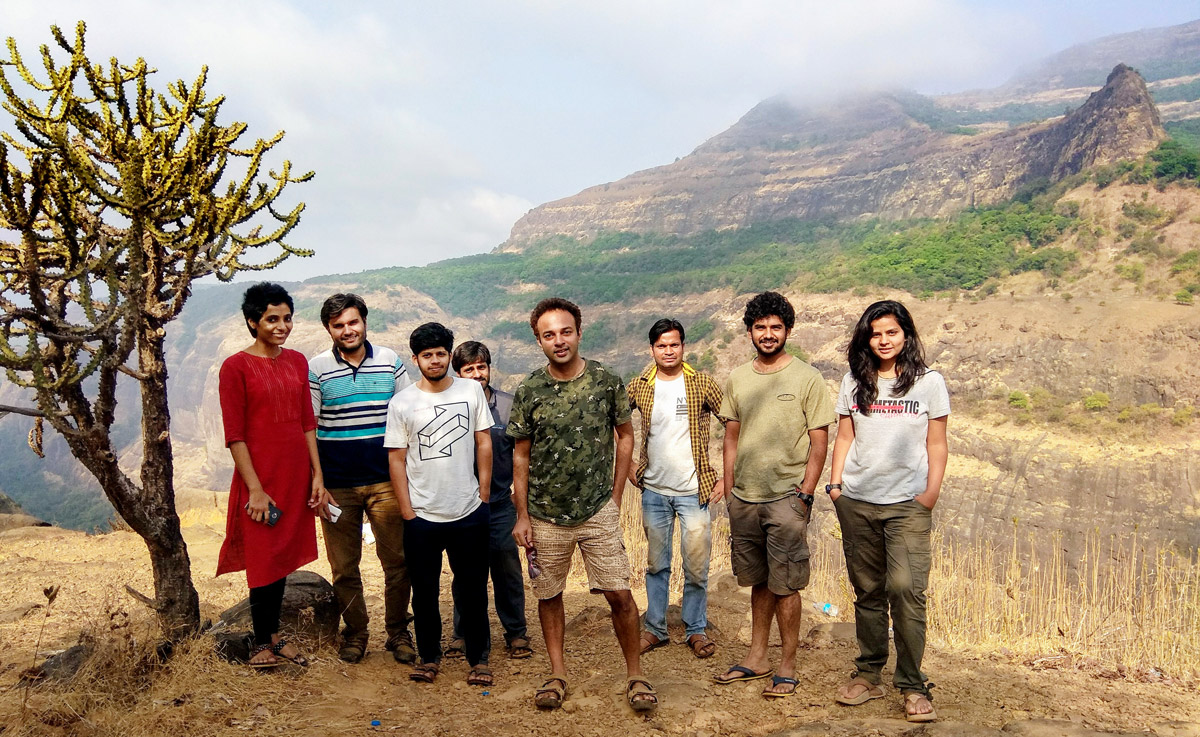hiv, aids, and kids
This is an account of my visit to Freedom Foundation, an organisation in Secunderabad, where HIV patients and drug addicts are taken care of.
Through talks with Jaya Singh, the project-coordinator, I could learn much about the situations surrounding the organisation and the patients. Freedom Foundation (FF) began in 1993 as a de-addiction centre. But, soon they realised that most of the addicted were HIV cases as well, thus, prompting them to turn their focus on HIV patients. Though Government had been running AIDS pevention and awarness programs from long before, FF was the first organisation that came ahead to take care of the existing patients.
Over there, I got to interact with 25 HIV infected orphans for a few days. Each time, I would wonder how long they are going to survive; how hard it must be for a 13 year old to live with the fact that she is HIV infected, and to know what it means.
We sang, played action songs and colored. A few of their colored greetings are displayed in this article. To wish them on the few birthdays they will be celebrating, check the dates and send your wishes to:
Community Care Centre & Diya Children Home
No: 21, Carriappa Road, Bolarum, Secunderabad -500 010
_____________________________![]()
The first lesson: HIV is not AIDS
Most of the problem revolving around HIV and AIDS related subjects is ignorance or rather, little information. Many of us confuse between HIV and AIDS. Even I had no clear idea until I met them.
HIV- Human Immunodeficiency Virus
This is just the name of the virus. If a person has contracted this virus, he is said to be HIV+ve. Over a period of years, this virus causes AIDS.
AIDS- Acquired immune deficiency syndrome or acquired immunodeficiency syndrome
This is a stage where the HIV has weakened the person’s immune system to such an extent that recovery is impossible. Diseases that might seem nothing to a normal child or an adult will become life threatening to a person with AIDS. Death is inevitable in such a case.
This means that a person with HIV can live a normal and healthy life for years before he/she develops AIDS. Unfortunately, the transition to AIDS is accelerated due to the prejudices and discrimination shown towards them.


Drawing by Akhila
__________________________________![]()
The first step: by you, by the society
I can call it an eye opener. Mr. Jaya Singh told me that he was involved in AIDS prevention and awareness programs for a few years before he decided to join a place that truly involved in caring for such patients.
The mistake we make is either to discriminate them completely or show them so much of care and concern that they look at themselves as different and feel discriminated!
Though awareness campaigns educate people to a certain extent, it can never bring sensitivity into them. Jaya Singh told pretty blankly to me that even though he is aware of HIV and AIDS and has been handling these cases for few years now, if his own wife is HIV infected, it will naturally occur to him to treat her differently! Also, most of the patients get better not with medicines but social acceptance. Well, let’s say about 25% medicines can work, but the rest 75% is a contribution of the society, and his family and environment. That is why, while patients are treated, side by side, they try to counsel the family and get them to a mentality to accept the patient back into their lives as normal human beings. Many HIV patients turn into AIDS patients only because of the social disturbances caused to them.
Probably, the first thing that our country must do is to have all major hospitals establish departments to treat such patients rather than refer them to organizations like Freedom Foundation.
The other part of discrimination is shown in the fact that none of the hospitals accept HIV infected patients. At the time of child delivery, the women are checked for their blood and if they turn out HIV +ve, they are immediately shown the door and taken to organizations that deal with HIV patients. The number of HIV patients is so high that few organizations like these find it impossible to handle them all. Freedom Foundation has a 30 bed facility and 25 orphaned kids, all infected by HIV. They also treat 600-700 outpatients. However, they run on a meagre amount provided by the government which can support only a 10 bed facility.
What could be done is to train them in various fields of self employment and then encourage them by buying their products.
HIV patients have to be economically independent and they have to be shown ways for it by us. Networking a team of HIV patients to work in groups for self employment purposes will help them to build confidence and by and by feel as an accepted part of the society.
Educate all, beginning from the politicians and policy makers to school children.
Politicians so that they don’t make mockery of the HIV patients, Policy makers so that they work towards the best interest of such patients and school children so that they are taught from early age of the less-privileged in our society and help them to understand and accept them sooner.


Drawing by Harish
__________________________________________________________![]()
The first help: Selfless heart to understand, Money to care
If we have to live thinking someone else will take care of them, then, let us not read this section.
A surprising fact that came to my light was that the government had been running ‘prevention and awareness programs’ for years together now. They spend crores over these. While such programs can be effective to a certain extent, statistics still show that the number of HIV infected population is rising. At some point of time, these people will require care and attention. The government seems oblivious of this hard fact. In the case of Freedom Foundation, the government supports financially for a 10 bed facility, but they run a 30 bed facility with 700 outpatients and 25 orphaned kids to take care of. Even innumerable approaches couldn’t budge the government to realise that money for patient care is required as much as it is required for the awareness programs. Such organizations are then left at the mercy of corporate individuals. Even for the purpose of awareness programs, the trail of bureaucracy involved takes 6-7 months before the program is put into action.
I asked if any politician visited them so far. Till date only one politician visited them and that too, with the media trailing after him for publicity. He was not let in ‘coz he refused to let go off the media. They do not understand the requirement to keep the confidence of these patients by not publicizing them!


Drawing by Likitha & Chandana




Drawing by Bikshapati
___________________________________________![]()
The first touch: Kids of Freedom Foundation
The rooms were not painted and I felt they deserved a better facility. Jaya Singh assured that a company has volunteered to get the facility painted for them.
I wished to volunteer to teach the kids something for their summer vacations. The gladness in his face was evident. I walked towards the kids’ room with him. They were bright young ones with ages ranging from 4- 14 years. He said, as before, it is often the treatment of the society that pushes an HIV patient into developing AIDS sooner. Since children are not aware of their condition, they survive the best as they go about living their life normally. I was asked not to talk about their condition to them. But, when you look at them, they seem no different…just like any other….you forget that they could be the carriers of the worst viruses that human race has seen until now. I had nothing to worry.
HIV cannot spread by touch or sharing things or even dry kissing on cheeks. This virus is not airborne. The virus can pass on through internal body fluids like blood, vaginal fluids or breast milk. If one is careful not to come in contact or in exchange with these, you can lead a normal life with an HIV infected person.




_______________________________![]()
The first true joy: I feel like God
Three days, for a few hours each, I encouraged them to color their thoughts and imagination on paper and songs. Sometimes, I used to wonder, how many of them would live long. We cannot cure them, but we can always make the days that they live a little better by being around these little ones with no one.



Drawing by Akhila



When I reach them and they wait to welcome me, I feel warmth in my heart. When it was time to part, they colored a chart full to gift Roxy and they hovered around me for so long that I had to promise them to return one day.

A drawing for Roxy, by all the kids at Freedom Foundation
At the end of it, I felt elated, yet humble to be of service to these children.
 Roxy Mathew Koll is a Climate Scientist at the Indian Institute of Tropical Meteorology. He also dons the role of an amateur naturalist, writer, web designer, photographer, and publisher—based on demand.
Roxy Mathew Koll is a Climate Scientist at the Indian Institute of Tropical Meteorology. He also dons the role of an amateur naturalist, writer, web designer, photographer, and publisher—based on demand. Juby Aleyas Koll, also know as Sarah, is the author and publisher of the book and website Sarah’s Hand Embroidery Tutorials. She has been researching and tutoring hand embroidery for over a decade, making it accessible to everyone around the globe.
Juby Aleyas Koll, also know as Sarah, is the author and publisher of the book and website Sarah’s Hand Embroidery Tutorials. She has been researching and tutoring hand embroidery for over a decade, making it accessible to everyone around the globe.
Hi, I find the blog informative, though… nice work… do share such information. I’ll bookmark your website.It was such a wonderful and useful article about the HIV infection. It is a must-readable blog to know the brief details of HIV infection.This information is so helpful for me.
The social dicrimination and alienation is because HIV and AIDS have been blown out of proportion – like what happened with the Swine Flu a couple of months. A kind of paranoia grips an average citizen from the information (s)he recieves from the media.
I remember how many of my colleagues (me included) was sceptical about visiting FF on an office initative initally. Out of say 60 only about 20 of us actually went to visit these kids the first time… Once there, our fears were forgotten and all of us had a great time with the kids. Subsequent visits and more ppl followed… and the 5th time we went the tiniest of them all was no more…. we all had grown found of her.. always in her fav pink dress she was all of 2 or so.
PNA
Dear PNA,
Nice to hear that you too had visited FF, though it is sad enough that it took the the smaller portion of you guys to pave way for the others to visit this place. Which FF did you visit?
I remember that during my visit to the orphanage, the walls were pinned up with many cards with the words ‘ we love you sharat’ on it. Later I learnt that it was a kid who had passed away just a couple of days before I visited them. When I visited the 2nd time, one of the children was missing. I asked them with grave fear where he was and they said that he took ill. Thankfully, the 3rd day, he returned all smiling!
Here is a good news: Kerala has become the first state to reserve a government job for HIV positive candidates. [Times of India article]
This is a a great news! I think it has been a very thoughtful and bold move. For the kind of job that the seat is being reserved, I think it won’t give the society a chance to feel bad about the decision either, and it is a good reach out for HIV positives.
hi juby chechi
1.regarding private hospitals the discrimination shown to hiv patients is NOT because of the social stigma assossiated with hiv because almost all the doctors of course know about the real picture of hiv infection. it is most often because of safety issues. actually u shouldnt underestimate the risks involved for a doctor who is doing OPERATIVE procedures on an hiv patient.(opd treatment and inpatient treatment of hiv patients for minor illnesses are minor issues) and a doctor doing so is supposed to take Universal precautions.. ie he has to wear many extra gadgets and that particular op theatre shouldn be used to do any more op without disinfecting it..etc. actually it involves so much additional resources, which usually the hosp admn wont be ready to provide.. so even though it is may seem unethical if u look from outside, i CANT BLAME a doctor who says i wont conduct ths delivery because the admn is not providing me facilities to protect myself when doing it..and also in dealing with patients with AIDS(very infective) this applies.
2. in gov hospitals , they usually dont discriminate against hiv patients as far as i know..and in a country where resources are scarce and u need most efficient use of resources, when prorities are taken into consideration, there are many other facilities that need to be added up, which are more cost effective in improving the health of public and which should be considered first. so hiv depts etc wil come lower down in the list only..there are much much more kids dying of diarrhea and malnutrition than aids, and it is preventable also.. so u should think which area govt should focus on..
it is not easy to check all pts for hiv b4 delivery esp in govt setup.. in JIPMER where i studied, most pts were from lower strata of society, who wil come to the hosp directly for delivery, without any pre natal checkups. and hiv tests takes one day to come out( they cant afford rapid tests),so cant know their status b4 delivery..so all of the deliveries are done without of course taking universal precautions, and v used to get pricked a lot doing episiotomy suturing under bad lights..had to conduct some deliveries without gloves also..so if one of us turned hiv positive who is to take the blame?
3.there are of course doctors who do alot for hiv patients ,and it is unethical not to give them care, but when safety of a doctor is compromised i feel a doctor can decide for himself,and u cant put blame on him.
4. and from the point of view of the hospital adminisrator,
a)he may hav some doctors who wouldnt want to treat hiv patients,whom he cant force them to treat because of b)
b)may not hav enough funds to provide adequate precautionary measures,or may find it not cost effective
c)may think why to take the trouble, for eg if one of the staff becomes hiv +ve he wil hav to answer for it.
so basically i feel this is a problem of managing resources in a cost effective way rather than an issue of discrimination and social stigma.. social welfare should be the first ethical rule, so when more welfare can be gained wit less intervention,it is to be done rather than something with less to gain with more use of resources.
Robin,
I appreciate that you gave me a view from a doctor’s percpective. I came to know of a few things that I was not so aware of.
Just to make clear, I was not blaming the doctors for the discrimination against HIV patients at the hospital. In fact, I was pretty much touched to know that there are doctors who risk thier lives for such patients. When I say that hospitals are asking patients to go to voluntary organisations, I did not intend that they are acting on social stigma ( though I cannot completely agree that there is no social stigma involved) . What I was giving were possible suggestions that could make lives better for HIV patients and the private voluntary organisations, one of them being that hospitals take intitiative about it.
The risks involved in taking care of such patients is not underestimated, and that is why I suggested special departments with special doctors and counsellors for these activities. I believe that in a private voluntary organisations too, they might be operating with pretty much as little resource as a hospital can afford in terms of equipements and safety?
I completely understand what you told about the impracticality of each patient being tested for HIV before delivery. Yes, indeed it is a a bad situation for the doctors.
Like I said, doctors need not be forced to treat patients. There are already doctors willing to work for them…at least from what I know. We don’t even need them in plenty like we might require for a general hospital. And, not all hospitals need to set up HIV departments. Only main hospitals which can afford to treat such patients are suggested to. They need not be many, but it can make a remarkable significance I feel. For instance, one HIV department for each district? Are you aware of any such departments running at district or state level? Imagine if there were no voluntary organisations to care for HIV patients in the name of safety, I wonder where would these patients go for any help at all!
Like discussed earlier in the article, I can agree that it is at the administrative part that things need to be changed in this case. Agreed that our country has very few resources to spend on such departments when there are many dying of other diseases. Yet, the fact remains that there are still HIV patients in large numbers who need care, counselling and medication and they need a place from where they can get these. HIV , unlike many other diseases, is not a kind of situation where giving medicines would suffice. It requires a good deal of emotional and mental support too…not only for the patient, but also for the families of the patient. And if they can’t be in a place where they can get all these, I wonder how is it going to help the situation in any way. When hospitals cannot provide a support to such patients, what is happening is that these patients turn to fake practitioners or fake medicines as a deperate measure for a cure and this becomes a bigger social problem.
Further reference: Pandya, S. K., 1997: Patients testing positive for HIV: ethical dilemmas in India. Indian Journal of Medical Ethics, 5 (2).
Roxy,
Its the one and only center in Kannur for caring AIDS patients. Its running by christian missionaries. Stephen Jayaraj is handling the center. Once in a week, the patients go out for an evening walk near to the center. Most of them is suffering from TB. We talked with some fellows,some of them told that their family is not aware that they are in the center and many fellows dont want to inform about them to their family. They are leading a peaceful life there and getting much care and attention. everyday they pray at least 5 hr. And doctor visit them twice in a day. When we visited there were 30 patients.
dear roxy,
it is difficult to establish depts in hospitals for aids patients, as many ethical issues are involved. u cant test a patient for hiv witout his consent, u cant reveal to him the result without his consent, and u r not supposed to tell anybody else also regarding the condition, ie,the hiv status of a patient is to be kept a secret. so it is impossible practically to make deptments for treating them without revealing their hiv status to the public..and i think only private hospitals show discrimination to them,and i cant blame them also as health risks for a doctor. especially in govt hospitals drs conduct deliveries and do emegency surgeries etc without knowing the hiv status of the patients, and wihout adequate facilities to take precautions during these procedures involving contact with blood..so there is definite risk involved. wil anyone go to an hiv +ve doctor for a surgery?hav to think this way also when it is said that drs are not supposed to discriminate pts. who wil take responsibiity if a dr turns +ve..? these are the issues involved..
Robin,
Thank you very much for a thoughtful response. It is right that while writing the article, the HIV patients were shown more empathy than the doctors. Yet, let me cover some of the issues that you told, and what I think.
1. I understand that a patient cannot be tested HIV without his consent or his status revealed without his consent. The issue here is not whether we are checking patients for HIV. The issue here is what is happening to the patients who are tested positive for HIV. Particularly women in labour. The problem that arises here is that, once these patients are tested positive, they are shown the door and asked to go to private organisations like Freedom Foundation(FF) for aid and help. Now, understand that there are not many organisations like FF that is established exclusively to take care of HIV patients. As a negative result, such organisations are seeing more incoming patients than what they can take or care for. These organisations run on their own money, donations and a little of what the government provides them with . I had been to FF and I saw how it is to have 30 in patients, 700 outpatients and 25 orphans when you have the funding for just a 10 bed facility. Do you think it is ethical on the hospitals’ part to show such a discrimination to HIV patients when the whole purpose of the hospital is to take care of them? Or, is the hospital’s part of duty over once it tests a patient for HIV?
2.About making departments without revealing status to the public. Like I said, the issue here is not if we are checking patients for HIV and sending them to HIV department. The issue is how are HIV positive patients are dealt with. A person who goes to private organisations will also be in the same boat as a person being treated in the HIV department of the hospital.
3. I understand that there is a risk factor for the doctors. Just to clear things up, even in organisations like FF, we have real doctors and nurses caring for the HIV patients. We do have doctors who are willing to work for such people and that too risking their lives. So, setting up a department for such patients in the hospital is not a far reaching idea.
4. Understood that once a hospital has an HIV department, the general public will be scared to use the hospital. Well, I don’t think any intelligent hospital will mix up the HIV department with the general department. When I say a department for HIV patients, I mean, that it should have specialised care, specialised doctors, specialised treatment or even a special building. A doctor dealing with HIV patients will not perform a general surgery or even deal with general patients. It is as good as having an FF in the hospital.
5. About hospitals being negligent. It is not an answer to say that a hospital cannot open an HIV department because it is negligent in its procedures. I think it is better to say that they should be more careful and apt in their procedures and open an HIV department. If the government hospitals are bad in following procedures, I think it is their fault and they are the ones to be corrected first. Don’t you check a woman’s blood for HIV before she is taken into delivery room? If not, then start checking. If rules need to be changed, then take steps to change it. What needs to be done is to make way for better functioning than to sulk back saying that it does not function well.
6. If the major private hospitals can open a small HIV department with specialised care and doctor, I think the concentration of patients in small private organisations will be reduced. This way, the patients can also get a better treatment and I think over time, the hospital will only increase its value in society. I agree though that in the initial period, there might be some bad responses, but I feel, being a doctor or hospital is not just about business, but also about the welfare of all people in the society and probably that should be the first ethical rule.
Hey Pramod, thanks! Great to know that you too had visited HIV patients. To provide compassion and a feeling of acceptance is the least we can do for them. You must have realised how difficult it is for them to be living inside boundaries and walls, especially children, for no fault of theirs.
nice post. remembering the days when me and some friends visited the HIV infected people in Prathyasha Bhavan, Kannur.
hello pramod… it is good to know about such care centres in kerala. how is their functioning?